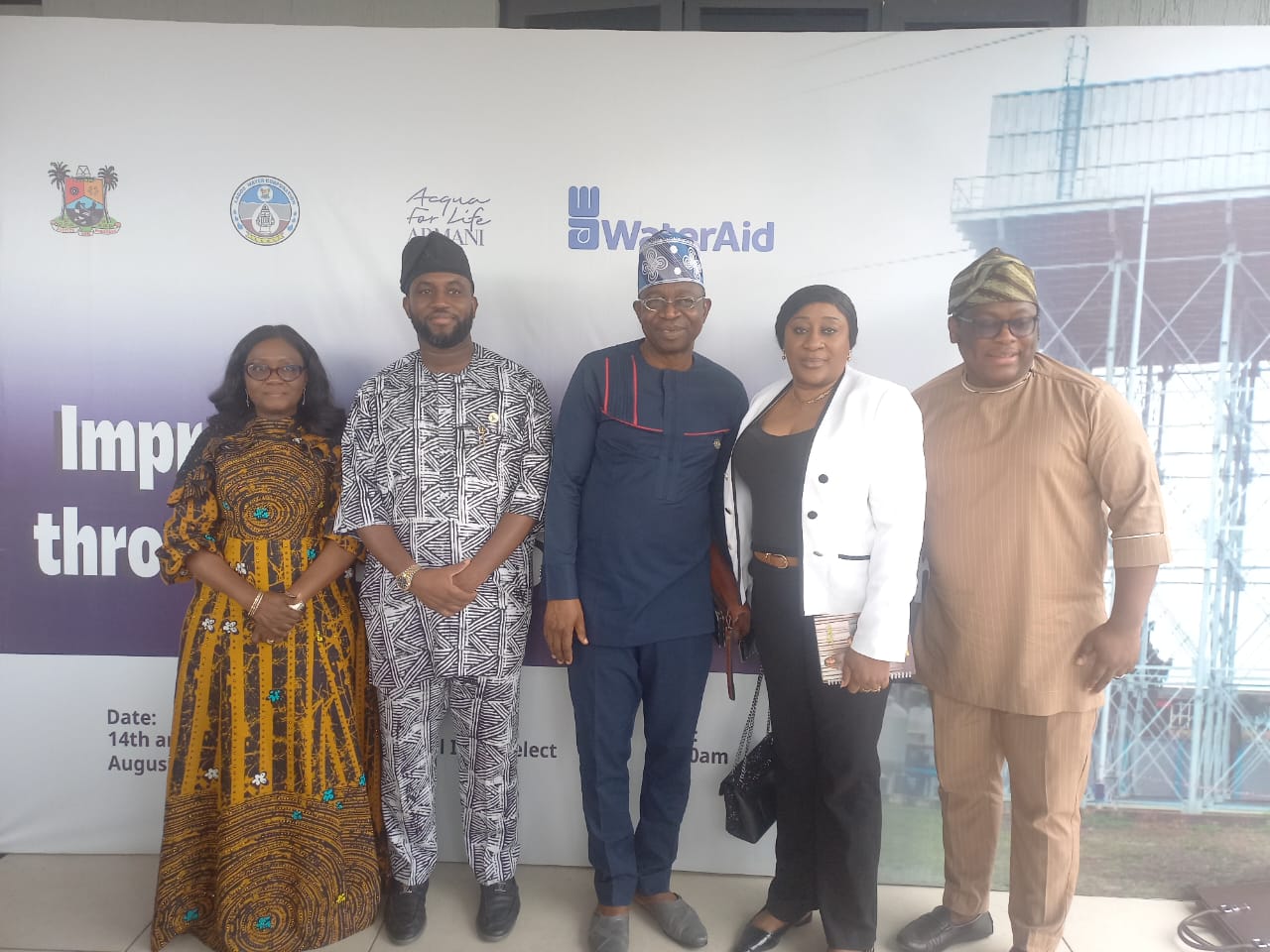The Lagos State Government on Friday assured prospective investors into its pilot Public-Private Partnership (PPP) model to expand potable water access in the state of every executive and legislative support.
The government disclosed this at the end of a two—day workshop of top government officials and key stakeholders in the Water, Sanitation and Hygiene Sector (WASH) in the state on PPP engagement.
Newsmen reports that the workshop is organised by the Lagos Water Corporation (LWC) with the support of WaterAid Nigeria.
In his welcome address, The Permanent Secretary, Office of Drainage Services, Engr. Mahmood Adegbite, reaffirmed the government’s commitment to addressing water supply challenges through stronger collaboration between the public and private sectors.
Adegbite said the state was “ready to solve” its water supply deficit and was “not shy to acknowledge the problem while taking decisive steps to fix it.”
He noted that while Lagos currently has an installed water production capacity of about 50 per cent of its demand, the actual operating capacity is lower, underscoring the urgency of expanding infrastructure.
He emphasised the need for accurate data to reflect the full spectrum of water providers — both public utilities and private operators — to better understand true access levels across the state.
“What we are doing today shows we are a serious people who know we have a problem, and we are now ready to solve it.
“We must bring everyone together — public and private — to close the supply gap,” Adegbite said.
He revealed that the state was exploring the establishment of mega water treatment plants to boost capacity, alongside plans to expand wastewater treatment infrastructure.
“As we pump more water into the system, we must also prepare to treat the increased wastewater.
“Within months, we will convene again to deliberate on wastewater management and treatment plants across the state,” he said.
Also Engr. Mukhtaar Tijani, Managing Director of LWC, stressed that the gathering was focused on public buy-in and understanding of the proposed PPP arrangement.
“The most important thing about today’s event is that we invited community-based organisations, the general public, and the people of Lagos State to understand what we are trying to achieve and to seek their support.
“They are the ultimate beneficiaries of this programme,”Tijani said
On expanding access and capacity, Tijani explained that LWC currently operates four major treatment plants — including large facilities at Adiyan and Iju — as well as 48 micro and mini treatment plants designed to serve surrounding communities.
He noted that while the two major plants were functioning and supplying water through the state network, only 7–10 of the smaller facilities were operating, and even then, below capacity.
He said that the first phase of the PPP would balance investments between lower-income and higher-income areas, with the goal of increasing access to safe water from less than 10 per cent of the population today to 30–40 per cent in five years, and up to 70 per cent within a decade.
On the common belief that water should be free, Tijani explained:
“Water is life, but when government cannot reliably provide it, people end up paying more to private vendors.
“Nobody asks the tanker driver to deliver water for free. The PPP is not privatisation — it is a strategic partnership to bring in funding, expertise, and efficiency to improve service.”
Dr. Adebayo Alao, Head of Lagos Programme for WaterAid Nigeria, emphasised the importance of an enabling environment for investors:
“Every investor wants a return on investment, and it is government’s responsibility to create confidence in the system.
“We already have enabling laws and the WASH policy approved by the governor last year, but where gaps exist, laws should be reviewed to meet current realities.”
He added that some civil society groups may misunderstand the PPP as privatisation and called for further engagement to clarify that the aim is to expand access, not transfer ownership.
On Legal backing to the PPP, the Chairman of the Lagos State House of Assembly Committee on Information, Hon Steven Ogundipe, assured that lawmakers were ready to provide legislative backing for the PPP initiative.
“Water is life, and we must leave a legacy for the next generation. If there are gaps in existing laws that could hinder the PPP, we will call for a public hearing and make necessary amendments quickly,” Ogundipe said.
He stressed that the Assembly would ensure equitable access, with provisions to support communities unable to meet initial payment requirements, and called for continuous stakeholder engagement — including with CSOs — to secure broad consensus.
stakeholders concluded that improved access to potable water in Lagos requires collaborative action between government, the private sector, legislators, and the public.
With enabling laws, targeted investments, and community engagement, the LWC and its partners aim to significantly expand coverage and reliability over the next decade. (NAN)


